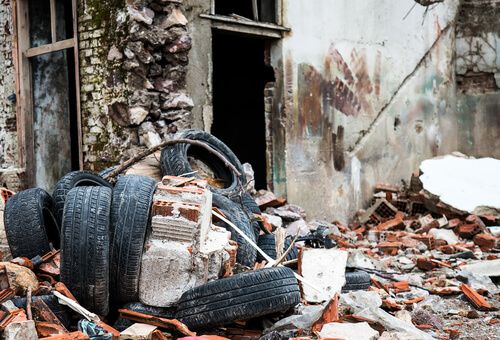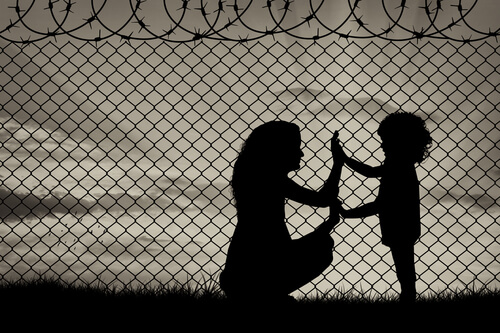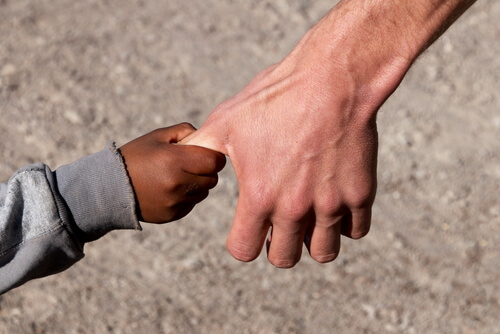When the Only Way Out Is to Live

We don’t often stop to think about how tremendously wonderful it is to truly live, in all our emotions, thoughts, and options. Or how in a single day, we can get angry, feel motivated, be happy, be sad, love, be loved, leave, return, do, and undo.
This all might seem a little obvious. And today, we have access to more media than we can consume, so simply having media doesn’t mean anything. Yet we still manage our time in a way that allows us to consume as much of it as possible.
But what if you couldn’t do anything but think, feel, or just live? Note that “live” was not included among the daily experiences we listed above, which you might not have realized initially. “To live,” understood as “to continue living” or “to stay alive,” is something so basic that we don’t even think about it.
But many people around the world get up every morning and go to bed every day with this dilemma. People who are accustomed to general well-being have a hard time comprehending what it’s like to struggle just to keep living, under conditions like hunger, poverty, terminal illness, and of course, war.
The struggle to live
We’ll use the ultimate example and focus on the Syrian Civil War. Five years have passed since Syrian civilians have started to die indiscriminately. As of today, more than 250,000 lives have been taken.
Although we’ve become desensitized to the bombardment of similar news stories we hear every day, in the societies where these lives are lost, the monstrous impact is felt at all levels. It would be impossible to summarize in words the extent of the atrocities suffered by the survivors of this conflict.

Even so, all Syrians face the same dilemma: to live, or not to live? Will I stay alive tonight? Will I live to see my daughter grow up? These are logical, human, and even necessary questions to ask in a situation where 512 bombs are dropped upon the population each day.
Well, against all odds, the survivors mentally endure. They don’t lose their minds. They fight to stay mentally and physically alive. And not only that, they also find a way to make sense of the conflict and do something about it.
They abandon their homes to emigrate elsewhere, they fight in the resistance with little guarantee of success, or they take jobs to support needier people (building workshops for women who have never worked before, medical assistant jobs in hospitals, information and documentation jobs, etc).
They remain alert, with shattered nerves and barely composed faces, keeping alive the few customs that the war forgot to destroy. They fight to sustain their families. And as I report on this sad reality, one question keeps ringing louder and louder in my mind: How are they able to do it?
“Some children emerged from a side street, where they formed a circle and started to play and laugh. But I didn’t find it funny. My mind was still distracted by the plane that hovered above our heads, that could tear them to pieces in seconds. Two mothers were standing at the door, dejected.”
– The Crossing: My Journey to the Shattered Heart of Syria – Samar Yazbek, 2015 –
How is it possible to live?
It’s hard to imagine how humans are capable of surviving situations like that. We can think of a few explanations for such altruistic behaviors, like resilience, intense fear, or the social feeling of unity in adversity. It could also be explained by the ability of human beings to normalize things that are seemingly impossible to normalize, like death.
All of these psychological explanations, and many more that weren’t brought up here, could be a valid start in understanding how the mind of someone in this kind of situation works. But they all share one thing in common: there’s no other option but to live.

This might sound insensitive and even hypocritical if we say it from the safety of our homes. But there’s a lot of truth in it. To clarify, why did we say that they have no other option? That’s not completely true, they always have the option to not do anything and wait to find out if they live or die by the hands of their attackers. They could do this, and it would also be logical, given the circumstances.
When we say that they have no other option, we mean that as humans, it’s in their nature to push themselves towards survival. Towards the optimal use of their mental and physical resources. Towards fighting and searching for meaning. We’ve seen examples of this in many survivors who have related their experiences to authors and psychoanalysts, such as Viktor Frankl, Erich Fromm, and Boris Cyrulnik, among others.
Something in common
And this is something that these survivors definitely share with the rest of us: human nature. The nature that makes it possible for us to feel fear, be resilient, normalize, fight, or escape, is the same nature that makes our days so rich in emotions, thoughts, and options. But, above all, it’s all about the drive to live.

We could live alienated from the outside world, enclosed in a bubble of information. We could choose not to do anything about this conflict, or we could choose to do everything. But no matter what, we’ll always have the infallible resource that is our humanity. We’ll always be looking at the world through human eyes, feeling like humans, and learning like humans. Learning that if we’re not capable, if there’s no other way out, if all seems lost, we’ll always have the option to live.
This text is provided for informational purposes only and does not replace consultation with a professional. If in doubt, consult your specialist.








